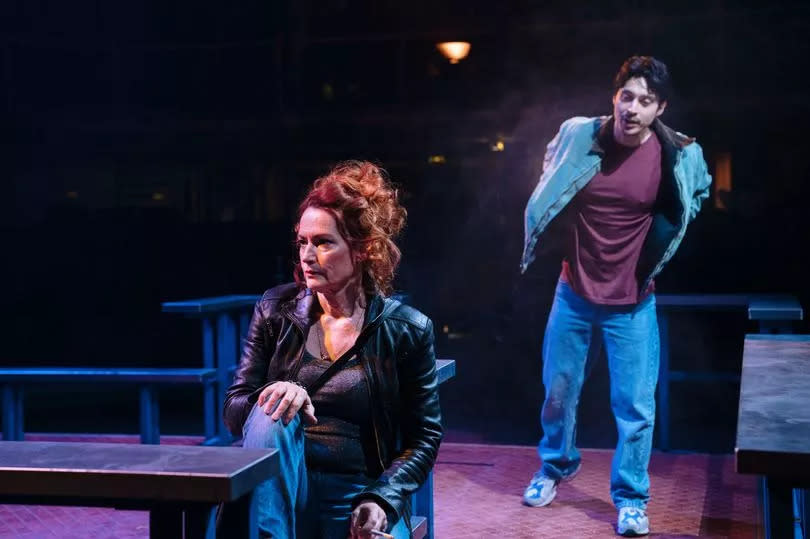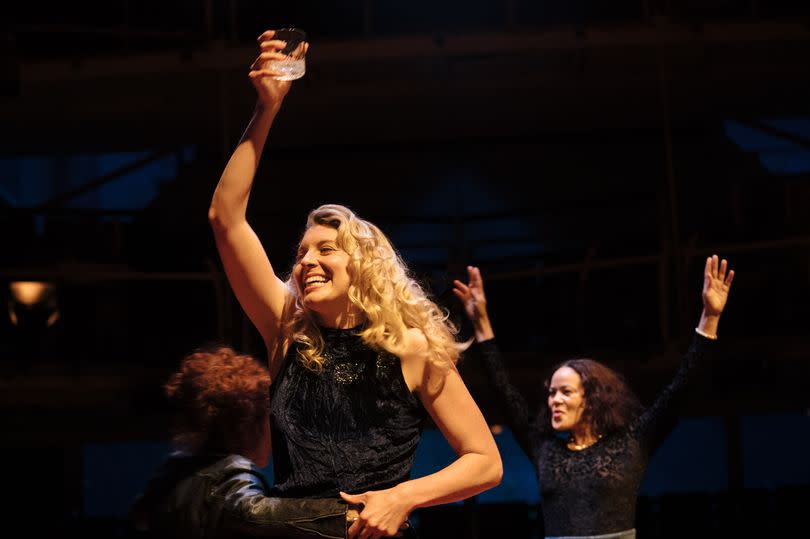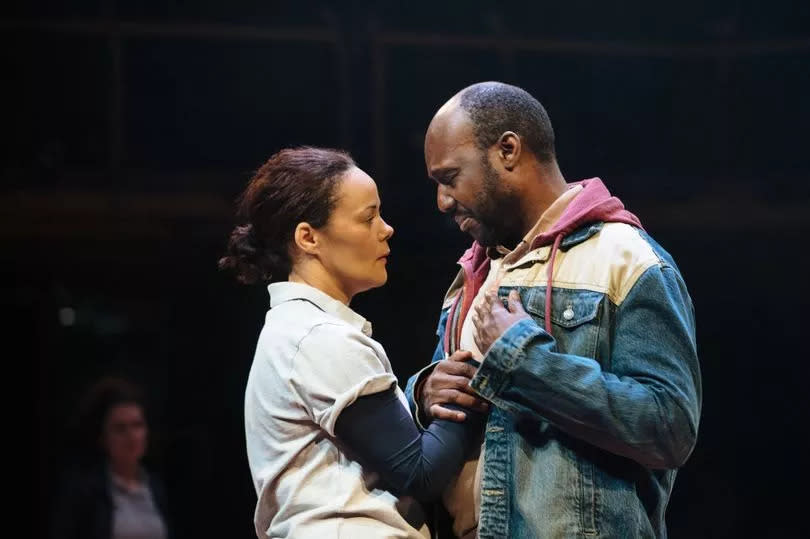Review: SWEAT at the Royal Exchange Theatre - Divide and rule in the Rust Belt

"What the f**k do you want him to do? Huh? It ain’t his fault. Talk to Olstead, his cronies. F**king Wall Street. Oscar ain’t getting rich off your misery."
Two-time Pulitzer Prize winner Lynne Nottage wrote her extraordinary play 'Sweat' after undertaking hours of interviews with residents of Reading, Pennsylvania. In an interview she remarked that after having spoken to some local steelworkers she told them "you guys sound like socialists".
Because of those source interviews there's a searing directness to the language of the play, a frankness and authenticity to the characters' voices. As the quote above illustrates this is a story of divide and rule told in the voices of those being divided - it's the uncompromising language of the angry, the ignored and the exploited - it's hardly surprising they sound like socialists.
At the centre of the play is the story of a group of friends who work at the same factory. Tracey, Cynthia and Jessie drink together, work together and complain about their lot together. That is until economic pressures, their ruthless employer and a promotion start to get in the way. Cynthia's husband Brucie is addicted to drugs and her son Chris and his best friend Jason (Tracey's son) also work in the factory.
The bartender in the place they drink is Stan, a man in his 50s, who also used to work in the factory until he was injured in an industrial accident, his assistant in the bar, Oscar, is Columbian. There is also a parole officer who deals with Jason and Chris when we flash forward in time and see the two boys leaving prison after serving time for an assault.
And that's the set-up.
Essentially this is a group of people who share a common workplace, drink, joke, argue and talk a lot. The pressure is rising though. There is tension over strike action, fears about the North American Free Trade Agreement (NAFTA) and rivalry over Cynthia's job promotion. When the tension reaches boiling point it leads to an horrific act of violence.

Nottage's play requires the actors to try to follow the ebb and flow of natural speech, frequently speech overlaps, people interrupt, they start sentences and don't finish them. The ensemble cast of this production do well with a tricky text. There are problems though. The American accents are a little inconsistent, and at times the cast seem to struggle to get the rhythm of everyday speech right. There are times when it's all a bit hesitant.
Overall though, this is clearly a committed and talented group. For me the stand-out performance of the evening was Pooky Quesnel as Tracey. She is completely believable as the working class mum filled with fury at the hand life (and her employer) have dealt her. She stomps around the stage, hands on hips, a defiant and unrelenting firebrand.
Chris Jack is also excellent as Brucie, Cynthia's drug addicted husband - infuriating and charming in equal measure until his addictions leave him desperate and unspun. His moments with Chris in Act 2 Scene 4 are some of the most moving of the play. His son Chris recalls how Brucie so impressed him at a public meeting by standing up and declaring: "We...we will not continue to bare our backs for them to strike us down". Brucie's reply "Is that really what I said?", is heartbreaking as we realise the distance the character has fallen and how much he is defeated.

Kate Kennedy is also excellent as Jessie. The character provides some much-needed light relief and Kennedy's Jessie gets plenty of laughs out of the audience - but this is not just a comic turn. She delivers an extremely moving speech about missed opportunities to travel the world with a hard sadness that hints at some of the reasons for her heavy drinking.
The set design by GOOD TEETH and the lighting by Elliot Griggs are both excellent, all metal and sparks and flashing of light - reminiscent of a storm but also of the inside of a steel factory. Heavy objects, presumably representing lumps of steel or concrete hang above the stage giving a sense of precarity - a feeling that at any moment the sky could fall - and for these characters it really could.
It's worth also noting the work of Kaitlin Howard the fight and intimacy director. The visceral act of violence near the conclusion of the play was so well done that the audience audibly gasped. Rarely have I seen stage violence done so effectively.

Director Jade Lewis is something of a rising star in British theatre having won an Olivier for her show Sleepova. She doesn’t shy away from the politics of this piece and it’s clear she’s directed it with a tenderness and appreciation for working class voices. Despite the actions of the characters we are never in any doubt that the real bad guy in this tale is the economic system.
Jason’s catastrophic act of violence - encouraged by his furious mother isn’t forgiven but it is placed in context. This is a cautionary tale about solidarity and knowing your enemy. It is a play that humbly suggests that the enemy is not the migrant workers, but rather a wider pernicious economic system that exploits humans and turns them against one another.
As the arguments about immigration in Britain rumble on, and people are deported in dawn raids to Rwanda, I can scarcely think of a more important message.
Jade Lewis and her cast deserve immense credit for tackling this brilliant and complex play. This is vital, pull-no-punches theatre with an essential message. Everyone should see it.

 Yahoo News
Yahoo News 
